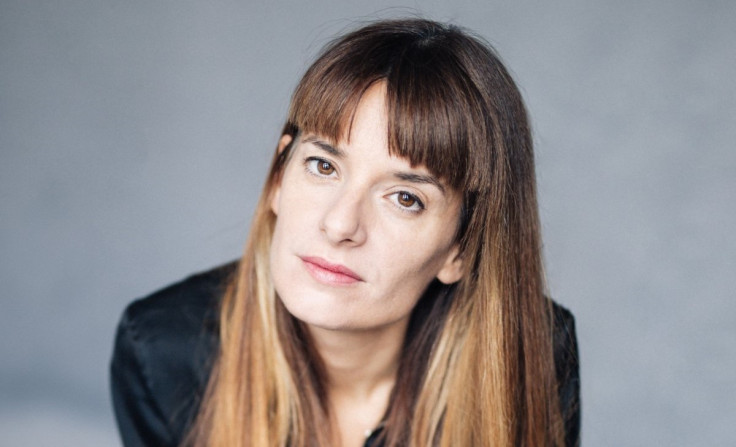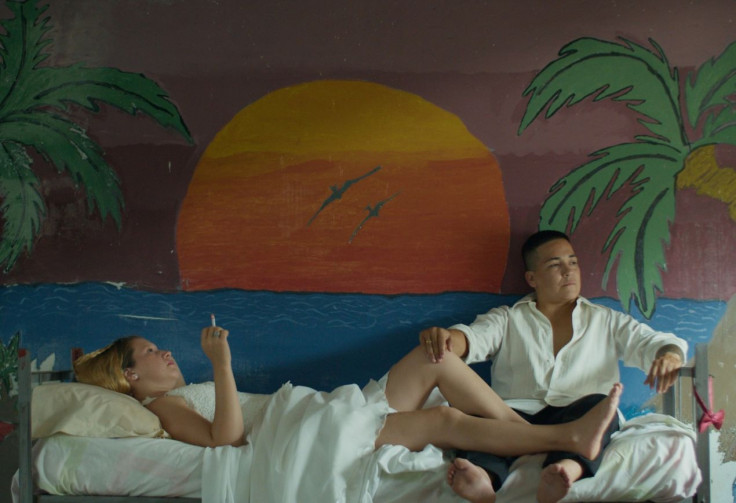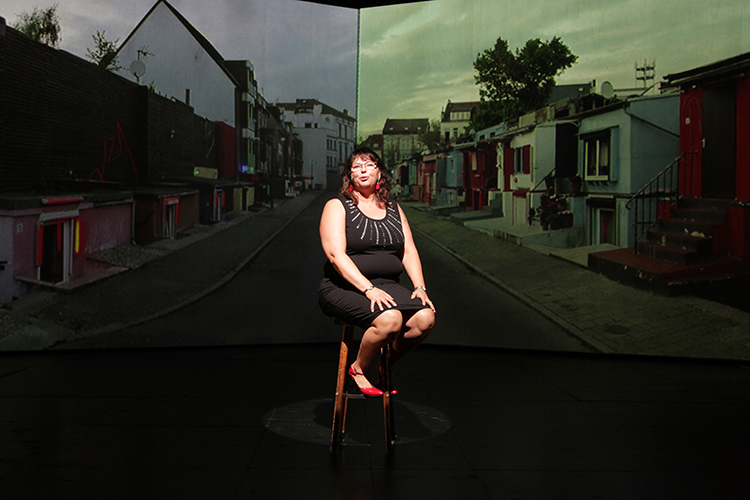
It's been a busy few weeks for Argentine playwright Lola Arias. Besides being awarded the International Ibsen Award on March 20 — to many, the world's most prestigious theatre award— she received the best documentary prize at the Festival International de Films de Femmes for her latest film, Reas, just three days later.
For most people, now would seem to be the perfect moment to relax, take some time off and reap the rewards of such extraordinary achievements. She is, after all, the first Latin American to ever win the International Ibsen, and only the second woman to do so. But Lola Arias is not like most people and, as I'll soon discover, now is anything but "the perfect moment" for Lola Arias to relax.
She's currently busy preparing her next play in her native Argentina, an offspring of her Reas project titled Los Días Afuera (The Days Outside). Whereas Reas is a film that tells the story of half a dozen ex-convicts who served their time inside a women's prison facility in Buenos Aires and reconstruct their stories through music and storytelling, Days brings the protagonists to the stage with the presence of a live audience.
The women in Reas and Days, it must be said, are not actresses nor is this fiction in the traditional sense that most audiences are accustomed to. They are, in fact, real ex-convicts with whom Arias workshopped for months. As she points out in her website: "I wanted to make a film about a women's prison without reproducing stigmatization. Through songs based on the protagonists' experiences and choreographies developed with them, real life was transformed into fiction."
It's all part of something called Documentary Theater, which has become the hallmark of her body of work. As the Ibsen committee pointed out in a lengthy statement that accompanied the prize, Arias creates "performances with (rather than simply about) the people whose lives and experiences are being presented onstage." This has lead her to work with Chileans who re-enact their parents' youth during the Pinochet dictatorship, Argentines who recreate their parents' experiences during the country's own military dictatorship and Malvinas veterans from both sides of the 1983 conflict who expose common references and differences that cannot be reconciled, just to name a few projects.
If it all sounds like something you've never seen before, then welcome to Lola Arias' world.
The Days in Buenos Aires
The rehearsals for The Days Outside are taking place amid volatile times in Argentina. Among the many changes president Javier Milei is trying to implement, culture seems to be a priority. 24 hours into his presidency, he got rid of the Ministry of Culture, the first of many rulings that have affected everything from music to museums to, of course, theater and film.
As a person who honed her craft in institutions that are, today, at risk of being severely curtailed or even disappearing, Arias doesn't mince words when talking about what's happening in her native country. "Culture is being deliberately attacked", she explains. "Since culture is a place for emancipation and a place where you can generate tools to be able to combat these fascist Government policies, it's being attacked. He (Milei) knows that within culture there are many people who are resisting and who are generating ties and networks to resist. And he wants to destroy that."
"Everything is at stake", she concludes, "because we have a president and a vice president who are denialists trying to erase everything we have achieved in these 41 years of democracy."
I ask her if she feels her future work will somehow reflect Argentina's current situation. "Well, everything has to do with this situation. The Days Outside has to do with it and, in fact, in this context it will lean even stronger into that because these people I'm working with who were already in dire, vulnerable situations are now on the verge of not being able to survive."

Who makes theater and why
Although she's been making plays since 2001, the Ibsen Prize committee was keen to point out that her "key contribution to theatre-making" lies in the aforementioned Documentary Theater genre, which she has been practicing since 2007.
"I come from literature and I wrote fictional works for several years. But at one point reality began to sneak in and infiltrate my work. It all started with Striptease, which is a work where a baby appears on stage as the most real and unpredictable element, responding to what happens in the situation. Then came My Life After, which is about the history of people who grew up during the Argentine dictatorship and that somehow marks the beginning of a more documentary archival work, a work with personal materials that are also historical materials."
From then on, Lola continued to explore the depths of the genre, producing a body of work that, to quote the Ibsen Committee once again, "is democratic, diverse, and rooted in the lived experience." The Year I was Born is based on the stories of people born during Pinochet's dictatorship. The Art of Making Money is a play performed by beggars, prostitutes, and street musicians from the city of Bremen while The Art of Arriving reflects on how to start a new life in another country, using the example of Bulgarian kids living in Germany.
Her plays are very specific to the context of every city where she performs a play, but still manage to tackle issues that feel universal for any person, no matter where he or she may come from. Minefield, her take on the Malvinas war, connects deeply when performed in front of an Argentine audience but it also finds emotional pathways with audiences abroad because it touches on the universal subject of war and the pain it inflicts.

Ultimately, for Lola Arias it's all about the transformative possibilities in her work. "I wish to generate projects that produce not only an awareness of certain issues but that can also transform the ways things are done. Because I believe with these projects that are made with real people who lived a certain experience you can not only transform the audience by putting them in contact with these realities, but you also transform the lives of the people who perform them. And the projects themselves become a tool for empowerment."
So what exactly does the Ibsen Award mean for her at this stage in her career? "It came at a moment when I am working on a project that I believe is even more challenging than my career. My country is going through the most challenging moment since the return of democracy. So, I truly feel that it's great that it happened now because it gives me the strength and hope to continue."
The International Ibsen Award ceremony will take place at Nationaltheatret in Oslo October 13th. As part of the ceremony, The Days Out There will be performed the previous day in the same venue.
© 2024 Latin Times. All rights reserved. Do not reproduce without permission.







